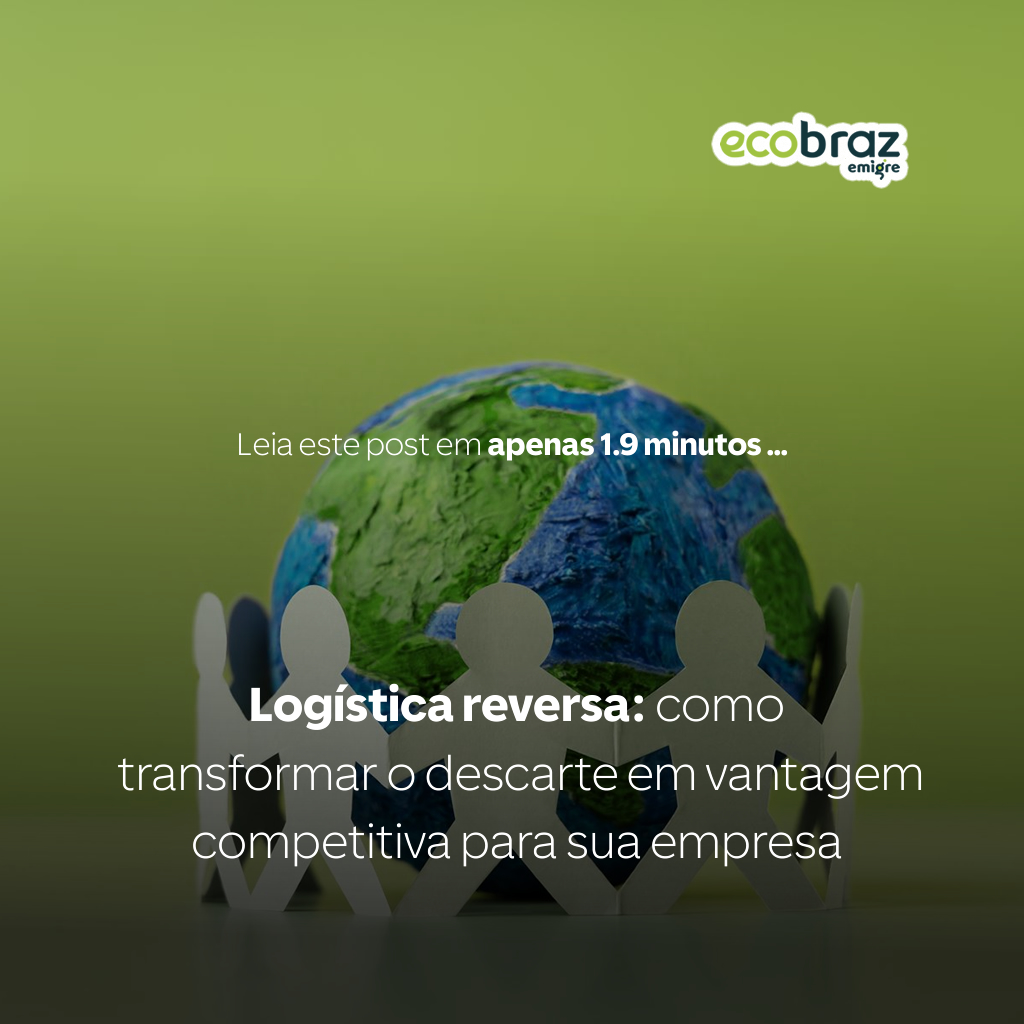Blog Ecobraz Eigre

how to turn disposal into a competitive advantage for your company
Publication date: 2025-10-08
Reverse logistics: how to turn disposal into a competitive advantage for your company
Description: Reverse logistics is an essential strategy for turning waste into value and strengthening corporate sustainability. The Ecobraz Emigre NGO guarantees complete, documented solutions aligned with ESG practices.
What is reverse logistics?
Reverse logistics is the process of collecting and redirecting products after consumption or use, ensuring they are reused, recycled, or properly disposed of. More than a legal requirement in Brazil, it is an opportunity for companies to demonstrate socio-environmental responsibility and create value for their stakeholders.
Why adopt reverse logistics?
The advantages of implementing reverse logistics include:
- Cost reduction: optimized waste management and material reuse.
- Legal compliance: adherence to the National Solid Waste Policy (Law 12.305/2010).
- Corporate reputation: strengthened image with clients and investors.
- Competitiveness: advantage in bids and contracts that require environmental practices.
- ESG alignment: proven positive environmental impact in sustainability reports.
The role of Ecobraz Emigre NGO
The Ecobraz Emigre NGO, a global leader in electronics recycling, offers complete infrastructure for corporate reverse logistics, ensuring:
- Nationwide collection: specialized service for large volumes.
- Traceability: monitoring of the entire process, from collection to final destination.
- Complete documentation: technical reports, manifests, and invoices.
- Safe process: licensed transportation and environmentally correct disposal.
- ESG reports: detailed metrics of positive environmental impact.
Sectors that benefit most
Reverse logistics is essential for companies in:
- Industries and manufacturers: return of obsolete or defective equipment.
- Importers and distributors: handling of returned or replaced batches.
- Retail and e-commerce: customer returns management.
- Financial institutions: disposal of ATMs and IT equipment.
- Public and diplomatic entities: secure disposal of sensitive electronics.
Reverse logistics process steps
- Scheduling: defining collection or delivery of equipment.
- Collection and transport: vehicles licensed for electronic waste.
- Reception and sorting: separation by type of material and volume.
- Processing: dismantling and recycling in industrial facilities.
- Documentation: issuance of reports and environmental certificates.
Economic and environmental impact
Reverse logistics reduces operational costs, generates savings with material reuse, and decreases the need for raw material extraction. Environmentally, it helps reduce pollution, greenhouse gas emissions, and strengthens the circular economy.
Call to action
Turn disposal into a competitive advantage. The Ecobraz Emigre NGO guarantees complete reverse logistics solutions with safety, documentation, and positive ESG impact.
📞 +55 11 4329-2001
✉️ contato@ecobraz.org.br
🌐 www.ecobraz.org

Deixe um comentário
O seu endereço de e-mail não será publicado. Campos obrigatórios são marcados com *